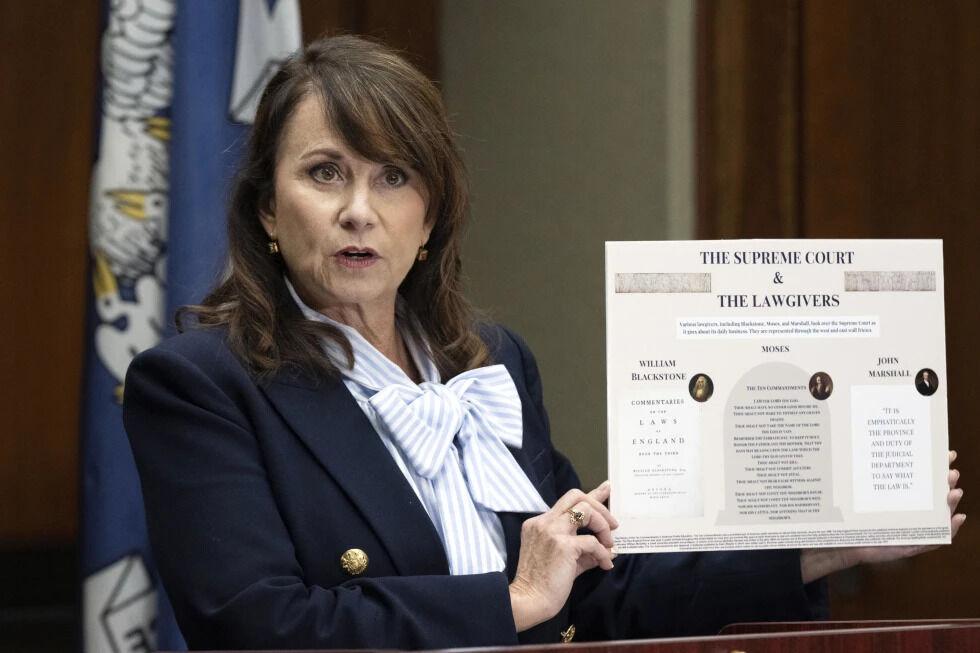It’s a tempting proposition: Let churches receive public money to take over government social programs. Religious communities already do so much good work, everything from feeding the hungry to housing the homeless. So what’s wrong with the government and the church working together for charity?
I don’t want to talk about the secular argument that religion shouldn’t be influencing government. I imagine you’ve heard that already. Instead, I would like to talk about how the influence of government on the church already is eroding its ability to provide a prophetic witness to the society around it.
“Prophetic witness” is a term that dates back to Old Testament prophets. These people were not only preachers, they “spoke truth to power,” condemning all forms of injustice they saw and attempting to reorient society toward a healthy relationship with each other and God. They did not seek to immediately solve problems, but rather change social structures that perpetuated injustice. They told people to “let justice roll down like waters,” not merely do acts of charity (Amos 5:24). This is not a condemnation of generosity, but a recognition that social ills are deep rooted, systemic problems. They cannot be addressed by handouts alone, but they require fundamental social change.
That is the risk of increased government interference in religious life. The prophetic voice I spoke of earlier is turned on its head. In a society where secular authorities provide social services, it’s those officials, be they legislators, mayors, councilmen or women, who work for the people. We hold them accountable to us.
With religious or other private bodies doing the work, it will be us working for them, a very different relationship.
How can churches hold people in power accountable when churches become dependent on those same powers, when they profit from them? Quite the opposite, it seems to me that the churches would be held accountable to the government, making them in effect their servants.
Beyond these abstract concerns are the day-to-day problems that will result. For example, school vouchers. Public schools face strict accountability standards. If private schools get public money in the form of vouchers, they eventually will be brought to similar accountability standards. This cannot do anything but harm their ability to design their curriculum independent of government interference.
The influx of public money probably will dry up the flow of voluntary contributions, as people feel they already gave when they filled out their taxes. The fact that the money is public also may force open churches’ financial records and programs to scrutiny by any citizen, something currently not allowed. And the churches will be helping the government take apart the national social safety net against hunger and homelessness that took so long to achieve.
In contrast to stereotypes about the conservatism of religious institutions, some of the most important organizing for social change to ever happen in America came largely out of houses of worship. The Abolitionist and Civil Rights Movements are just two examples. Faith-based initiatives and other governmental attempts to woo the church into a closer relationship threaten this tradition. They in effect buy off the church, making it a tool of the state, not the state’s conscience and moral compass.
The Old Testament offers a dark vision of what happens to nations that lose the prophetic witness of people of faith. Without an effective moral voice to hold leaders accountable, they spiral down a path of greater economic exploitation of the most vulnerable among them and greater violence at home and abroad to defend this exploitation.
The institutions that should provide direction to the society (like the church) become complicit in its injustices and serve to “whitewash” them, covering them up (Ezekiel, Chapter 22).
If the people will not reform themselves, the end result is the bringing of their conduct upon their heads, the destruction of the society. This is what the prophets claimed happened to Israel and other nations in the Bible. Their words hopefully are a warning to us of the proper role that religious institutions play in society and the need for a separation of church and state not for protection of the secular nature of government, but for the preservation of the independence of the church’s voice.
Faith-based initiatives and non-prophet organizations
By Brian Marks, Columnist
November 22, 2002
More to Discover







